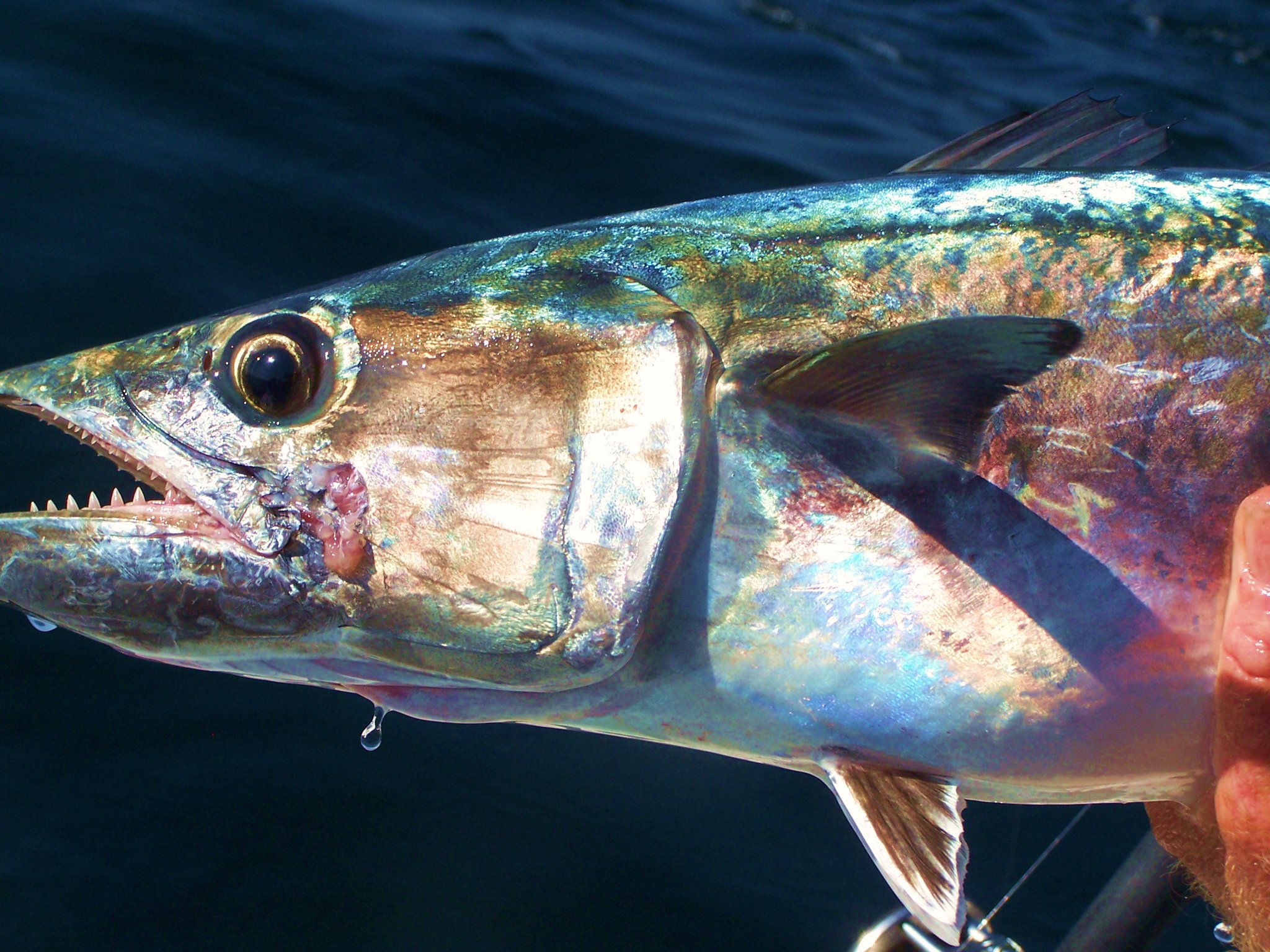When you’re talking terminal tackle, freshwater fish are pretty easy to deal with. clamp on a fly and go at it. if you’re dealing with muskies or potentially really big pike, a fluorocarbon bite-guard, or one made of braided wire, will do the trick. But saltwater critters are different. if you’re fishing for semi-toothy fish like the various tunas or mahi-mahi, you can stick with fluoro of 40-60 pounds and generally be safe. The problem is, when you find these fish you also frequently find wahoo, king mackerel, and barracuda. This is a good problem to have, but it takes a bit of preparation to deal with the toothy ones. Braided wire has long been the standby for toothy fish, but there are some problems with it. First, an active wahoo can actually saw through it, regardless of the wire’s weight or diameter. The braided surface is rough and uneven; it gives a fish’s teeth plenty of opportunity to nick and snag and then find purchase. From there the teeth can work away until your day is ruined. Now, this is not a frequent occurrence, but it’s something that does not happen with single-strand wire. if you play piano or guitar, you know what we’re talking about: a solid length of wire, usually in the 20-60 pound range. single-strand has two advantages over braided wire: it’s much narrower in diameter for a given pound- test, and it’s smooth. There’s nothing for a fish’s teeth to catch on and chew through. so when we’re after fish with teeth, our choice is single-strand wire. it’s smaller in diameter (and so presumably less obvious to the fish) and it’s more tooth proof. Give it a try. We recommend offshore Angler’s “leader wire” and Malin’s single- strand stainless wire in sizes #2 to #6 (29-pound/13-kg test to 61-pound/28-kg test), depending on what you’re after. And finally, a quick update: we’ve been testing titanium wire, and so far we love it. it’s a single strand, but unlike regular steel bite tippets it doesn’t easily kink. it is, though, expensive. our initial impressions are that it’s worth the cost, but we’ll report back when we’ve had more time fishing the stuff.


